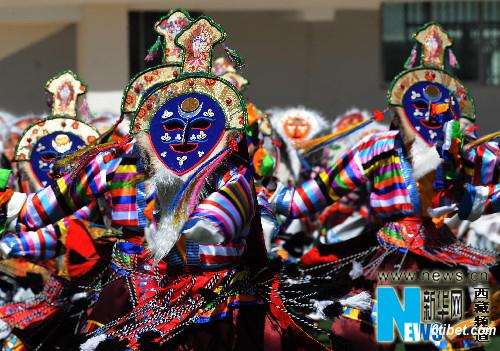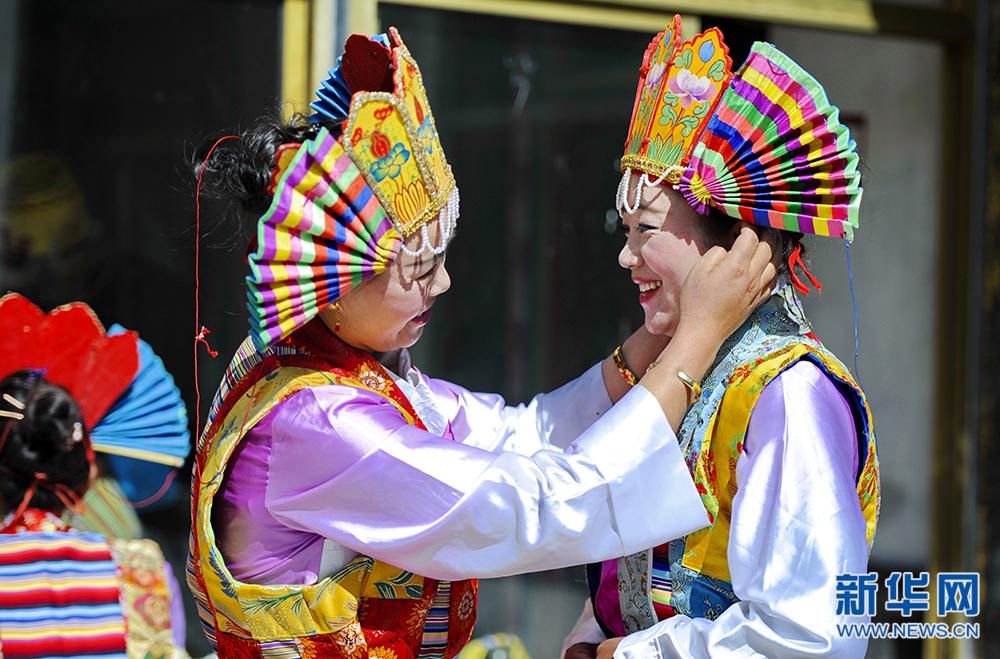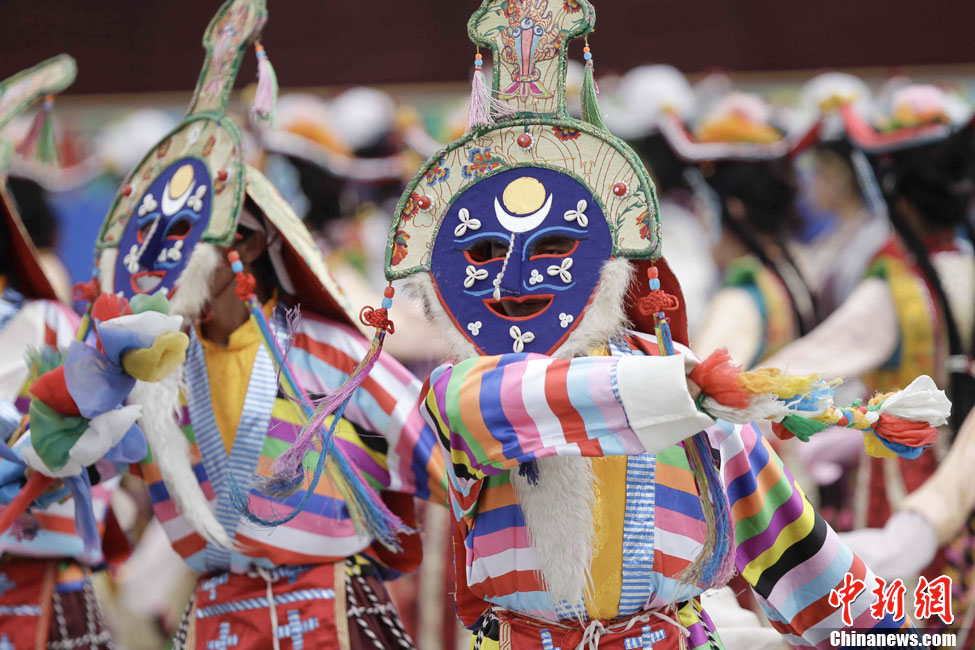Young director elevates Tibetan opera to a new stage
For Sonam Chodron, her adaption of the Italian opera "Turandot" into a Tibetan opera production was more than a creative endeavor, it was a way to introduce the public to a performance style that originated on the Qinghai-Tibet Plateau.
In her production, Chodron, 28, has directed her two protagonists -- Persian princess Turandot and Tartar prince Calaf -- to not only dress in the Tibetan opera style but also adjust their performances to mirror the western China art form.
FOR ART'S SAKE
"Tibetan opera is as pleasing to the ear as a bird's song," said Chodron.
Dating back to the 14th century, the performance style epitomizes Tibetan culture, combining dance, chanting and songs, and with the region's famed painted masks. It was awarded national intangible cultural heritage status in 2006 and was added to the UNESCO World Heritage List in 2009.
Chodron began studying Tibetan opera when she was 12 years old and gave up the opportunity to attend a larger school outside her region to continue her opera studies.
She graduated from Tibet University in 2008 and became a professional performer.
After working with a troop of actors that toured villages around the region, in 2013, Chodron was accepted by the National Academy of Chinese Theater Arts (NACTA) to major in Tibetan opera.
WHEN TURANDOT MEETS TIBETAN OPERA
During her time in Beijing as a student at NACTA, Chodron was exposed to China's numerous opera styles. At the academy she was able to expand her portfolio to include directing.
"My teacher introduced me to 'Turandot.' In traditional Tibetan opera, we have similar stories that feature love and riddles," Chodron said, explaining why she decided to adapt the opera.
"Turandot" is based on a Persian fable but is set in China. It tells of a princess so desirable that men came in their hundreds, from all over the world, to vie for her favor. Each prospective suitor was asked three riddles -- and those who failed to answer correctly were decapitated and their heads placed on stakes as a warning for others still to come.
Chodron first produced a 20-minute excerpt of the adaptation, which won praise from her teachers and classmates.
The complete 90-minute performance debuted in Lhasa in October 2016 and after excellent reviews, opened at a Beijing theater one month later.
"Writing scripts is not as difficult as composing music. When creating this performance, I tried to combine the Tibetan style with Qin opera," she said, referring to the style that originates in northwest China's Shaanxi Province.
"It is a bold adaptation," said Sonam Wangchug, the actor who plays the Tartar prince.
With nine years under his belt as a Tibetan opera actor, Wangchug said this was the first time that he had worked with actors from outside the region.
"It is a great attempt to integrate the two styles," said Liu Yu, a critic with Tibet Institute of National Art.
In two months, Chodron will graduate from the National Academy of Chinese Theater Arts, one of the first Tibetan opera performers to be awarded a bachelor's degree.
"I am committed to Tibetan opera. I hope to share the love I hold for it with more people," she said.
Your Comment
Name E-mailRelated News
-
;
-
-

-
Tibetan opera training course opens
A 60-day Tibetan opera training course opened on April 8 in southwest China's Tibet Autonomous Region, gathering 45 artists from the region and its neighboring Qinghai Province and far north Gansu Province.
-
-
-

-
Tibetan opera full of vitality in villages
Tibetan opera, reputed as the living fossil of Tibetan culture, originated in the 8th century from religious art, which gradually formed a lively performance combining singing, chanting, dancing, expressing, speaking and artistry.
-
-
-

-
Eight national intangible cultural heritage Tibetan Opera scripts
It took seven years for Tibet to complete the first writing of the eight major traditional Tibetan Opera scripts.
-
Based in Lhasa, Tibet Vista is a Tibet travel agency that specialized in Tibet permit, and Tibet tours for both private and group travelers at a local price!
•4 Days Lhasa City Group Tour from USD 460 •8 Days Everest Base Camp Group Tour from USD 850 •15 Days Mt.Kailash Group Tour from USD 1780 •2016 Tibet Train Tours from Beijing, Shanghai, Chengdu, Xining,etc










